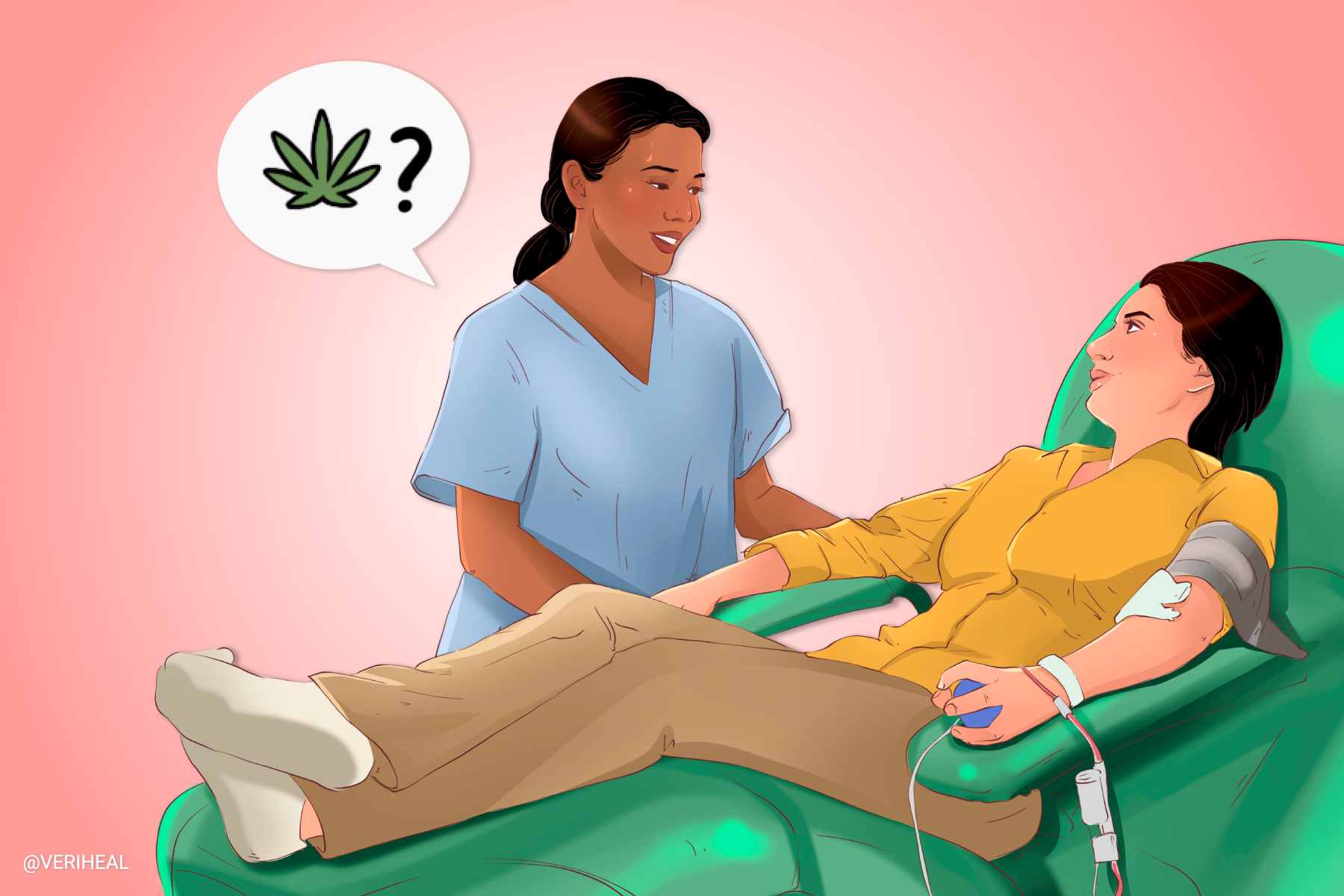When it comes to regular cannabis consumers, one may wonder whether they can donate blood. Blood donation is of particular importance as it could mean the difference between life and death, especially in countries like South Africa, where the National Blood Bank levels are significantly low. In South Africa, a blood transfusion takes place around every 48 seconds while approximately 5 million Americans receive blood transfusions every year according to the National Institutes of Health. With a growing population of cannabis consumers, it is important to understand whether the cannabis community can contribute to blood banks.
There are a number of reasons for the need for blood transfusions such as severe injury, surgery, cancer, and disease or conditions. The blood necessary for blood transfusions is obtained through the process of blood donation- which involves a series of inquiries into health, lifestyle, and travel history in order to determine whether one is eligible for blood donation.
Are Cannabis Consumers Able to Donate Blood?
The authority on blood donation in America, American Red Cross, has attempted to answer the most common questions concerning cannabis consumers who wish to donate blood. These frequently asked questions include:
- Does cannabis consumption disqualify one from blood donation?
- Is there a certain waiting period between cannabis consumption and blood donation?
- Does the Red Cross comply with the Drug Enforcement Administration who enforces federal cannabis prohibition?
- Will the recipient fail a drug test if they were to receive the cannabis consumer’s blood?
The answers to such questions are quite a relief for the cannabis consumers who wish to make blood donations. The Red Cross explains that cannabis consumption does not disqualify one from donating blood and that they encourage all donors who feel well to make an appointment for blood donation. They also go on to explain that there is no data that specifies how long an individual should wait between cannabis consumption and blood donation. However, they do advise that cannabis consumers do not donate blood if memory or comprehension is being impaired.
Additionally, the Red Cross explains that they do not report to the DEA and that blood donation is regulated by the U.S Food and Drug Administration (FDA). They go on to state that the FDA does not require donated blood to be tested for cannabis compounds such as tetrahydrocannabinol (THC). They also state that the recipient who receives the blood of a cannabis consumer will not fail a drug test, even if the donor is a heavy cannabis consumer.
There Are Many Factors That Can Disqualify a Donor
Healthline explains that blood donation clinics may turn one away if they arrive visibly high and that “legal or illegal use of marijuana is not otherwise a cause of deferral”. Healthline does advise that cannabis and nicotine consumed together may cause an increase in blood pressure- which would then disqualify one from donating blood. They also advise against smoking post-donation in order to avoid adverse effects such as feeling dizzy.
Why You Should Get Your Medical Marijuana Card
Veriheal has satisfied millions of patients nationwide by giving them access to these benefits
- Larger purchase limits
- Peace of mind
- Enhanced legal protection
- Access to higher potency strains
- Save up to 25% on cannabis purchases
- Skip the line at the dispensary
Conventional blood bank testing includes analyzing blood for the Rh typing and infections which include HIV, human T-cell lymphotropic virus (HTLV), hepatitis B and C, syphilis, West Nile virus, and Chagas disease. The blood banks do not test for nicotine, tobacco, or cannabis.
Factors that can disqualify one from donating blood include:
- Illicit injection drugs
- Steroids
- Infection
- Pregnancy or recent birth
- Recent tattoos
- Cancers
- Disorders and conditions such as blood clotting disorder
- Viruses
- Overseas travel to certain countries
The Red Cross also addresses concerns over donating platelets or plasmas as a cannabis consumer and explains that the guidelines are the same as for donating blood. Cannabis consumption does not disqualify one from donating platelets or plasmas. However, one concern is highlighted with regards to synthetic cannabis consumption. Synthetic cannabinoids have been found to “contain certain anticoagulants known to contaminate plasma”- which means that it is best to avoid donating plasma when consuming synthetic cannabis.
The Red Cross also states that local blood centers are the authority on whether to accept the blood, platelets or plasmas from synthetic cannabinoid consumers since there are adverse differences between the consumption of botanical and synthetic cannabinoids.
Cannabis and Cardiovascular Health
Medical News Today explains that cannabis consumers can donate blood as long as their blood pressure is between 90/50 millimeters and 80/100 millimeters of mercury. Additionally, a study found that cannabis can impact the cardiovascular system but this shouldn’t necessarily impact the quality of any donated blood. Thus making blood donation of cannabis consumers subject to the consumers overall health and even though cannabis can cause such effects in the cardiovascular system, it does not mean that this will happen to all cannabis consumers.
Since cannabis consumption does not disqualify one from donating blood, platelets or plasmas and since it does not put the patient at risk, it is encouraged that the cannabis community take to donating their blood as frequently as allowed in order to maintain blood levels at blood banks. However, we do advise that cannabis consumers do not smoke before or after donating blood to avoid potential adverse effects such as drowsiness, dizziness or queasiness. For more information on donating blood as a cannabis consumer, it is advised that you contact local blood blank clinics or authorities and potentially get your cardiovascular health examined before donation.
Author, Share & Comments








